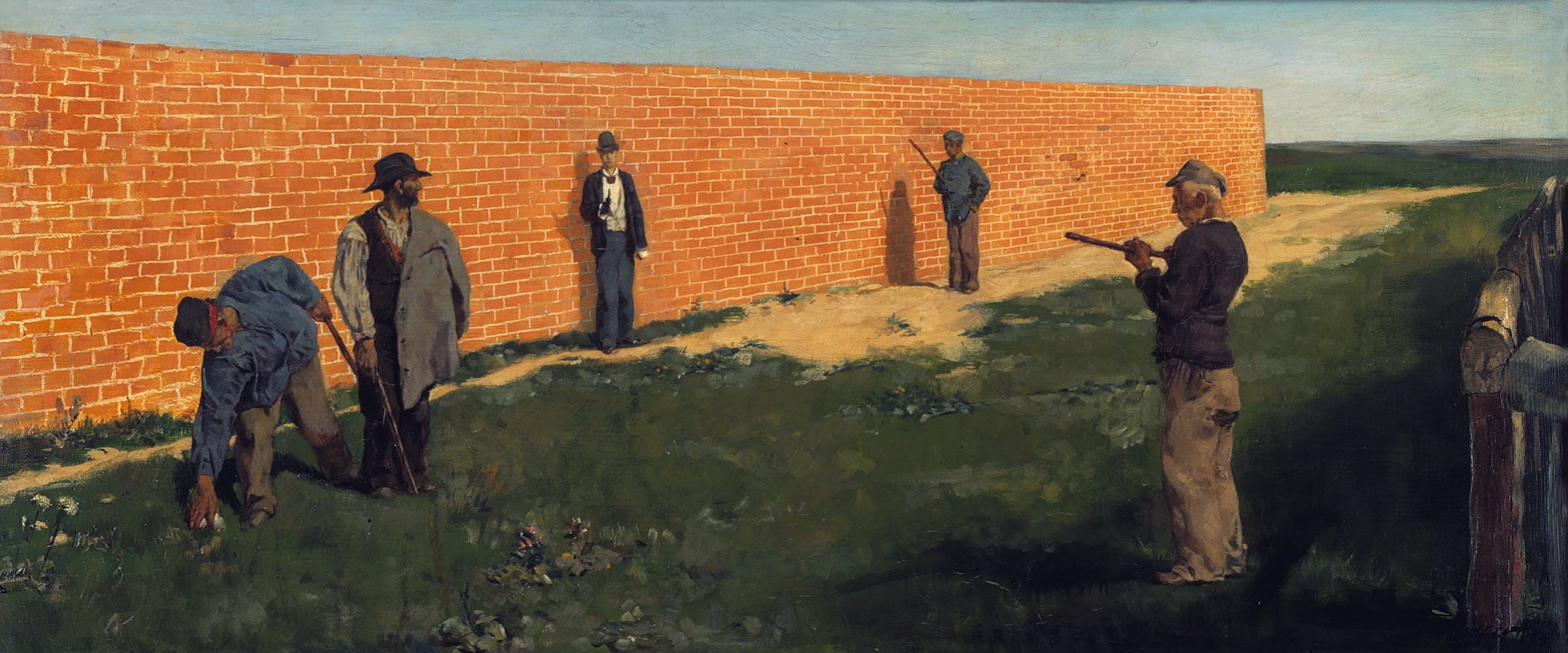James and the Giant Preach
On the desperate little censorship of Roald Dahl.
Over the years, saying what I’m forbidden to say has invariably landed me in the soup.
As a teenager, armed with the knowledge that swearing three times before a police officer would contravene the Section 5 ‘public order’ act, I landed on several occasions in a police cell. Long story short: I spent the next four Sundays painting the fence surrounding a mental institution.
Perhaps uttering the words ‘mental institution’ would now land one in the soup.
After drinking the beer, the cider, the whiskey, the wine, I drained a recent evening goading Facebook’s resolve.
First, I posted the comment: ‘Men are bad.’ To my charm, Facebook’s hall monitors burst through the screen.
“Your comment could be construed as hate speech.”
In the interests of drunken, amateur sociology, I clicked ‘post anyway.’ So far, so juvenile. Next, I prefixed ‘white’: same effect.
Then my not entirely insane, communist friend tried his luck: ‘Hang the rich!’ The irony: the apologist for that creed’s murderous history himself felt the digital Stasi tap on his shoulder.
Facebook’s Oversight Board draws the line at the most loathsome invention to plague the civilised—the screw-top wine bottle.
After I posted that screw-top wine is a perversion, the aiding and abetting of which justify death by hanging, the curtain-twitchers bounced me into digital detention.
Upon this hill I will perish: Screw-top wine is like having sex whilst wearing a wetsuit.
This brings me to Roald Dahl. Last week, it emerged sensitivity readers have cleansed offensive language from great swathes of Dahl’s oeuvre.
The publisher hired sensitivity readers—censors, in old money—to rewrite works—works which have sold 250 million copies—so ‘all can enjoy’ those works today.
Augustus Gloop in Charlie and the Chocolate Factory is now ‘enormous’ rather than ‘fat.’ In The Twits, Mrs Twit is no longer ‘ugly and beastly’ but beastly. Oh, Oompa Loompas are now gender-neutral. And the Cloud-Men in James and the Giant Peach are now Cloud-People. Rather than ‘turn white,’ characters ‘turn quite pale.’ Oh, and women are now girlboss top scientists, and CEOs.
Editors not only banished the word ‘fat,’ culled the word ‘ugly’ but seared hundreds of edits upon the original text.
Reader, the sadism gets worse. Editors took it upon themselves to graft upon the work entirely new passages.
In The Witches, a paragraph revealing that witches are bald beneath their wigs ends with the new line: “There are plenty of other reasons why women might wear wigs and there is certainly nothing wrong with that.”
The Roald Dahl Story Company owes its existence to the genius and works of the namesake whom it desecrates. And yet, they said: “It’s not unusual to review the language.” According to them, the hundreds of context-bending edits and syntactic surgery were “small and carefully considered.”
Such cultural vandalism is not normal. Reader, this is like waking to discover an amateur surgeon has surgically removed your penis. ‘What’s the problem? They titter. These changes are both small and carefully considered.’
This necromancy is the handiwork of a cadre of sensitivity readers, Inclusive Minds.
From what I gather, Inclusive Minds is one of those vainglorious two-person ‘collectives’ who mistake the neurotic obsessions of the few for a neurosis of the many.
Missioned to cure fictitious ills, they exhibit a form of cultural Munchausen syndrome.
I’ll go out on a limb here. The average sensitivity reader is high in neuroticism and low in agreeableness—the mental soup of the puritan and make-safe—and amongst the most sensitive of people currently breathing.
In the social media age, upper-percentile neurotics can present themselves as the reasonable echo of the right side of history. Rest assured, reader, this is just the kind of wankery up with which the vast majority will not put.
Their website gives the game away. Inclusive Minds is a “collective for people who are passionate about inclusion and accessibility in children’s literature.” Because that’s not weird.
Alexandra Strick, a co-founder, said they “aim to ensure authentic representation, by working closely with the book world and with those who have lived experience of any facet of diversity.”
Pro-tip: anyone employing the limp, diseased adjective ‘passionate’ or the nonsense term ‘lived experience’ has jammed a coat-hanger up their nose and wiggled it about.
Invariably, any company crowbarring ‘inclusion’ into a sentence is about as inclusive as a dick pic. They might convince themselves that we, the well-adjusted, want to see their mottled membrum virile, but we most certainly do not.
In their work, The Coddling of the American Mind, Greg Lukianoff, and Jonathan Haidt suggests decades of Safetyism have spun a samsara of eternal neurosis. By sealing off reality and risk, the safety-first culture renders itself infantile.
And yet, Safetyism eats everything except itself. What is safe today, is dangerous tomorrow. What is satire today, is reality tomorrow.




Just when I thought they had ruined, vandalized, insulted or desecrated everything that has ever made my life fun, enjoyable, meaningful and interesting. Screwing with The Witches is especially messed up. Though it's not surprising either: good old Roald's creativity may well be too raw, palpable and amazing for this processed, sanitized, vanilla era. And infantilized too, as Gombrowicz predicted.
Dahl wasn't the first: Dr. Seuss and Laura Ingalls Wilder have already been targeted. But he sure won't be the last. Buy a safe and guard your children's books if you have kids or grandkids down the road if they are "old school" stories. If they aren't coming for your children physically, they sure are coming for their soul cultivation tools - and, by default, the souls themselves.
Sex in a wetsuit isn't so bad ..... but you feel weird afterwards